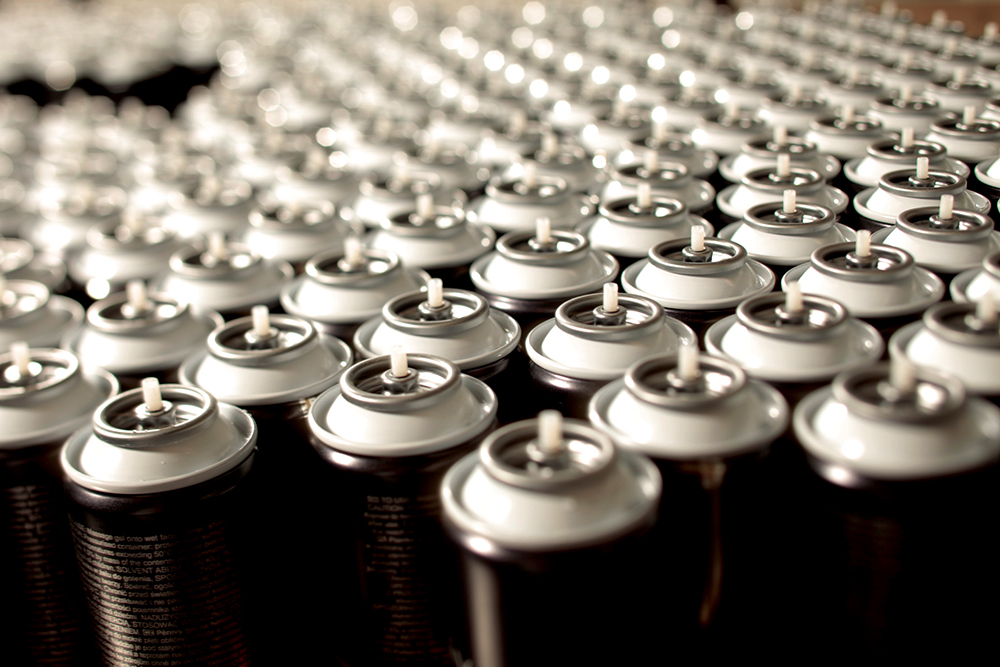In addition to providing technical advice and a wide range of business support services for companies operating in every part of the aerosol supply chain, an integral part of the work undertaken by the British Aerosol Manufacturers’ Association (BAMA) is lobbying industry views to legislators and regulators.
Patrick Heskins
Chief Executive of BAMA
The majority of legislation which is relevant to the aerosol sector is of course pan European. The European Commission proposes a Directive (implemented by national legislation) or Regulation, (directly implemented into each Member State). This is then considered by representatives of the governments of the EU and ultimately, recommendations are agreed by the Council of Ministers, composed of the national ministers from the 28 Member States.
Before these recommendations can be enacted however, they must be agreed by the elected representatives of each Member State which comprise the European Parliament. It is a challenging and lengthy process but by working with civil servants and lobbying MEPs, there are real opportunities to influence legislation at a local level.
A special case
Almost without exception, aerosols present a special case in terms of legislation specifically. As well as the management of environment, and health and safety issues aerosols require specific expertise and in-depth knowledge of the technology, the industry and the issues themselves. And for many businesses, the challenge is that aerosols represent a major part of their profitability but are at the same time, the area which is the most vulnerable to adverse legislation or public opinion.
It is BAMA’s job is to manage that environment on behalf of its members co-ordinating and conveying the requirements and opinions of our industry to the UK Government, the European Commission and European Parliament. And as negotiations between the UK Government and the European Commission for the UK to leave the European Union get underway, it is something which is at the forefront of many business’ minds. Certainly it remains hard to discern what progress is being made and while we know that trade negotiations cannot start until the ‘divorce settlement’ has been agreed, there are many pieces of legislation where the possible changes that result will affect the aerosol industry to a greater or lesser degree.
A double edged sword
Aerosols are an incredibly versatile product. It is a factor which underpins the success and growth of the industry but can be seen to present something of a double edged sword. Indeed there are many sector specific regulations which impact upon the aerosol industry, affecting the production of cosmetics, biocides, soaps and detergents and paints to name a few.
The vast range of applications to which aerosols are suited means that BAMA works closely with a number of other trade associations including for example, the British Coatings Federation (BCF) and British Plastic Federation (BPF) as both seek to influence the European Commission regarding the reclassification of Titanium Dioxide (Ti02) which is a major ingredient in paints and plastics.
Indeed the recent changes in classification of both Bisphenol A (BPA) and Titanium Dioxide are of widespread significance.
BPA is a key component in the manufacture of epoxy-phenolic coatings which are the most common and important class of aerosol cans and valve cup coatings. As long as the lacquer is cured correctly however, only trace residues of BPA ever remain in the coating.
The European Food Safety Authority (EFSA) has evaluated BPA on many occasions in response to the various alleged negative health effects and has concluded that in current food contact applications it is entirely safe for consumers.
The change to the classification of BPA however was anticipated and both can and valve makers have been working to find alternative materials for their coatings which are BPA non-intent.
The reclassification of Titanium Dioxide prompted BAMA and the Alliance of Chemical Associations (ACA) to write to the Department for Business, Energy and Industrial Strategy (BEIS) to stress the vital importance of this material and work continues to influence the European Commission.
The versatility of aerosols also means that they fall within the scope of the Aerosol Dispensers Directive which has recently been evaluated by the European Commission. Setting out the primary safety requirements for the aerosol package and the tests which must be made during production to protect consumer safety, it is believed that the directive will be left in its current format.
Focusing on waste
Waste regulations are set to remain a major focus for BAMA. Hazardous waste in particular is a subject which BAMA has devoted considerable attention to in recent months – waste from factories specifically being classified as hazardous, depending on the contents of the can, means that it must be handled and disposed of in accordance with the relevant regulations.
Following the new set of waste management regulations issued by DEFRA, namely WM3, BAMA has again worked closely with its colleagues at the ACA, to ensure all companies which dispose of aerosols as part of their operation, are aware of and have access to the appropriate guidance.
Getting around
While aerosol dispensers have an excellent safety record both in transport and in use, they are pressurised containers and ‘dangerous’ for transport. As a general rule, ‘dangerous goods’ should be transported in UN approved packaging and be accompanied by detailed documentation. The UN allocates a unique number and name to each substance or article to aid identification. e.g. UN1950 Aerosols. Fortunately most aerosols are eligible for exemption from the full regulations applicable to one or more of the modes of transport and are subject only to the more relaxed requirements and transported as ‘dangerous goods in limited quantities’. In these circumstances the outer packaging does not need to be UN approved.
REACH
A further, major piece of legislation which affects the aerosol industry is REACH.
REACH is an EU regulation concerning the Registration, Evaluation, Authorisation and restriction of Chemicals. It came into force in 2007 and replaced a number of European Directives and Regulations with a single system.
It exists to provide a high level of consumer health protection and safeguard the environment as well as driving innovation in the EU chemicals industry. Significantly, one of the key aims of REACH is also to make the people who place chemicals on the market including manufacturers and importers, responsible for understanding and managing the risks associated with the use of those chemicals.
In practice this means that the registration of chemicals intended for use in consumer products must be made by a company which is a member of the EU. And the reality today is that at this juncture, it is simply not possible to say how this will affect the UK, following our departure from the union.
Working with the FEA
As a member of the FEA (European Aerosol Federation), BAMA is actively involved in FEA Committees, working in partnership to lobby for Amendments to Technical Progress (ATPs).
Both the FEA and BAMA are committed to fostering innovation and driving improved performance across a broad range of products and to this end, lobbying activity in recent years resulted in agreement from the EC to allow aerosols with non-flammable and dissolved gases to be filled to a higher pressure.
The challenge now is to get through an ATP on plastic aerosols which will mean that they are considered in a similar way to metal aerosols in terms of pack size.
A sustainable future
Of course there are many more pieces of legislation where change is possible or indeed likely, the impact however being of less significance generally than the areas highlighted here.
Ultimately, BAMA will continue its work to support the its members’ interests in the drive for a sustainable aerosol industry, helping to deliver clear and accurately timed lobbying to influence developments on key legislation.
For more information: www.bama.co.uk










